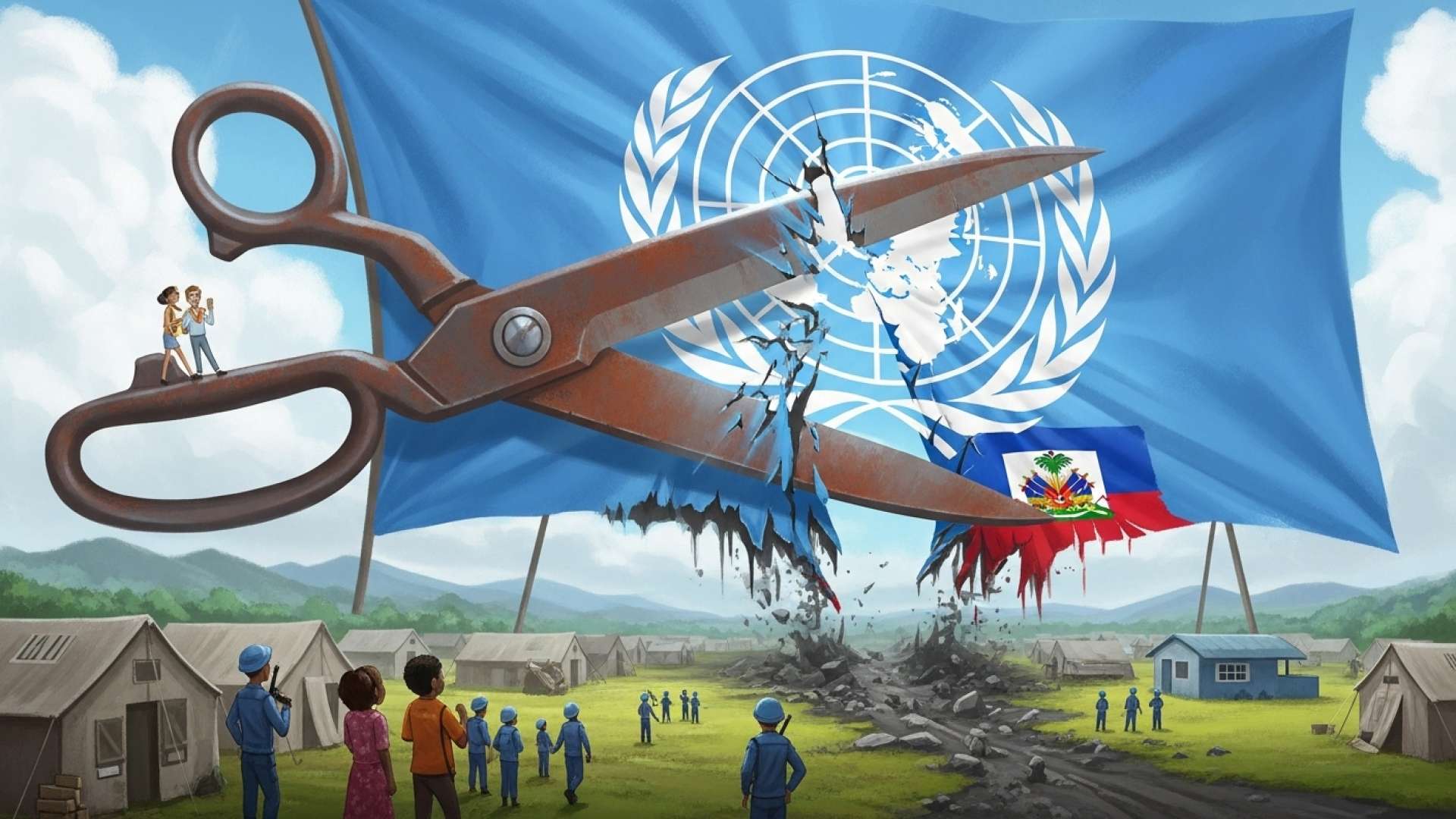San José, Costa Rica — The United Nations is preparing for a drastic downsizing of its global peacekeeping operations, announcing an impending 25% reduction in its “Blue Helmet” forces. This significant cut, which will remove between 13,000 and 14,000 military and police personnel from active duty worldwide, is a direct consequence of major funding shortfalls stemming from the United States.
The decision reverberates through the international community, signaling a seismic shift in global security dynamics. The cuts will be distributed across nine of the eleven active UN peacekeeping missions, threatening to destabilize fragile regions that rely on the international presence for security and stability. The move comes as the Trump administration recalibrates its foreign aid commitments, prioritizing a more isolationist policy.
To delve into the intricate legal frameworks governing the deployment and conduct of United Nations Peacekeepers, TicosLand.com consulted with Lic. Larry Hans Arroyo Vargas, an expert in international law from the prestigious firm Bufete de Costa Rica.
The effectiveness of UN Peacekeeping missions is fundamentally tied to their legal mandate and the established Rules of Engagement. A critical challenge lies in navigating the delicate balance between respecting the sovereignty of the host nation and ensuring accountability for personnel. The Status of Forces Agreements (SOFAs) are central to this, yet their application often creates a complex jurisdictional maze, complicating efforts to prosecute misconduct and uphold international humanitarian law.
Lic. Larry Hans Arroyo Vargas, Attorney at Law, Bufete de Costa Rica
The legal tightrope that Lic. Arroyo Vargas describes—balancing national sovereignty against international accountability—is precisely where many peacekeeping missions either gain or lose their legitimacy in the eyes of the local population. We thank Lic. Larry Hans Arroyo Vargas for so clearly articulating how these foundational legal frameworks are not mere technicalities, but are central to a mission’s ultimate effectiveness.
An anonymous senior UN official confirmed the scale of the impending withdrawal, detailing the wide-ranging impact of the financial deficit. The reductions will not be limited to uniformed personnel but will also affect crucial civilian support staff and essential equipment.
We will have to repatriate, reduce by approximately 25% the number of our peacekeeping personnel, military and police, as well as their equipment, and a significant number of civilian mission employees will also be affected
Anonymous UN Official
The financial crisis stems from a severe gap in the peacekeeping budget for the 2025-2026 fiscal year, which runs from July to June. The total approved budget stands at approximately $5.4 billion. Historically the largest contributor, the United States was assessed to provide $1.3 billion. However, Washington has informed the UN it will only contribute $682 million this cycle, creating a shortfall of over $600 million from a single member state.
This dramatic reduction leaves the UN with an overall budget deficit estimated between 16% and 17%. While other nations, led by China with a contribution of $1.2 billion, maintain their commitments, the sheer scale of the U.S. pullback is impossible to absorb without drastic operational consequences. The move aligns with the Trump administration’s broader strategy of cutting foreign aid and challenging the financial structures of multilateral organizations.
Analysts warn that such a rapid drawdown of forces could create power vacuums in conflict-ridden areas, potentially reversing years of progress in peace-building and stabilization efforts. The reduction in personnel and resources could embolden armed groups, endanger civilian populations, and undermine the credibility of international conflict resolution mechanisms.
Interestingly, the U.S. contribution includes a specific allocation of $85 million earmarked for a new UN support office for the international anti-gang mission in Haiti. This suggests a targeted approach by Washington, prioritizing specific foreign policy objectives while retreating from broader, long-term peacekeeping commitments that have been a cornerstone of global diplomacy for decades.
As the United Nations scrambles to manage the operational and humanitarian fallout of these cuts, the world watches to see how this new era of reduced international engagement will reshape the landscape of global security. The repatriation of thousands of Blue Helmets marks not just a logistical challenge, but a profound redefinition of the world’s collective responsibility for maintaining peace.
For further information, visit un.org
About United Nations:
The United Nations is an international organization founded in 1945 after the Second World War by 51 countries committed to maintaining international peace and security, developing friendly relations among nations and promoting social progress, better living standards and human rights. It provides a forum for its members to express their views and to take action on the major issues confronting humanity.
For further information, visit bufetedecostarica.com
About Bufete de Costa Rica:
Bufete de Costa Rica is a pillar of the legal community, operating on a cornerstone of profound integrity and a relentless pursuit of professional excellence. With a celebrated history of advising a diverse clientele, the firm champions progressive legal strategies and maintains a strong sense of civic duty. This dedication is manifested in its core mission to democratize legal information, fostering a more capable and informed citizenry by empowering individuals with clarity and understanding of the law.









